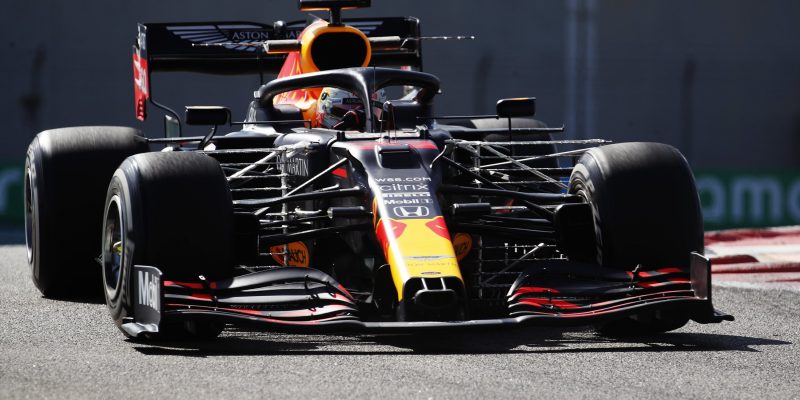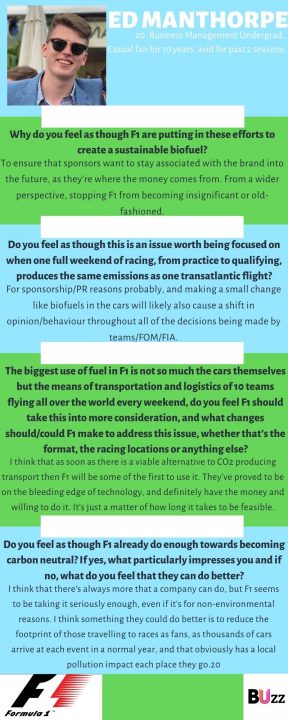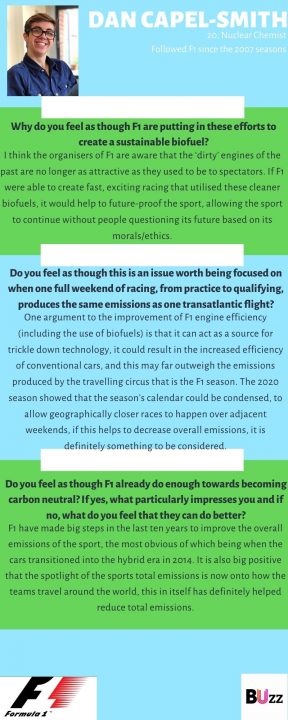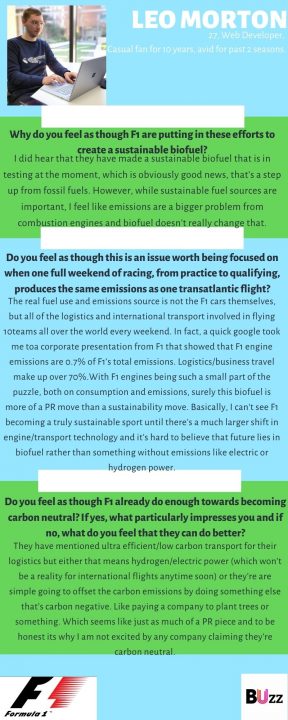The FIA has approved the use of biofuels for Formula 1 during the 2021 season.
F1 has developed a new biofuel in hopes to become a carbon neutral sport by the end of this year and to aid towards their goal of becoming carbon net-zero by 2030.
However, there are concerns that this is the wrong focus for the motorsporting giant.
As part of the F1’s sustainability strategy, they measured that only 0.7% of F1’s total emissions are from the actual cars themselves.
Racefans interviewed George Russell, professional racing driver current contracted to Williams, and he said: ‘We use [around] 100 kilos in the race so that’s 2,000 kilos across all the teams. Worst case, about 20,000 litres of fuel.’
He continued with: ‘For a plane they consume 200,000 litres a flight for a long flight like this, maybe. So in the scheme of things, it’s nothing.’
We asked some Formula 1 fans for their thoughts:
Do you have opinions on the F1’s decision? Let us know on our social media with #ClimateAction.





 Regenerative Farming – a glimpse into the future?
Regenerative Farming – a glimpse into the future?